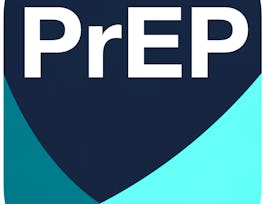Inappropriate use of medicines harms patients' health and increases healthcare costs. When healthcare professionals and patients engage together, healthcare can be based on the patient perspective, so the use of medicines is better tailored to each patient's needs and preferences. The result is a better relationship between patients and healthcare professionals, more appropriate medicines use, improved patient outcomes, and reduced healthcare costs.



Understanding Patient Perspectives on Medications



Instructors: Anna Birna Almarsdottir
Sponsored by Mojatu Foundation
8,211 already enrolled
(163 reviews)
What you'll learn
Explain the benefits of including patients' perspectives in healthcare practice and policy.
Explore the patient perspective on medicines use.
Skills you'll gain
Details to know

Add to your LinkedIn profile
4 assignments
See how employees at top companies are mastering in-demand skills


Earn a career certificate
Add this credential to your LinkedIn profile, resume, or CV
Share it on social media and in your performance review

There are 4 modules in this course
This module will give an overview of society-wide challenges related to medicines use. You will learn why it is important to understand the patient perspective on medicines use, and be introduced to issues that will be discussed during the course, such as patients’ perspectives versus professionals’ perspectives on medicines use.
What's included
3 videos4 readings1 assignment1 discussion prompt
In this module you will learn about patients’ views on medicines use and how medicines are incorporated in their daily lives. You will be introduced to a model summarizing different aspects of the patient perspective on medicines use. You will also meet patients who will tell about their personal experiences with medicines use.
What's included
3 videos3 readings2 assignments1 discussion prompt
In this module you will learn that the patient's rationality regarding medicines use is not always in sync with the professionals’ rationality. You will be introduced to various ways of how healthcare professionals evaluate the patient perspective on medicines use. This relates to satisfaction, patients’ attitudes towards medicines, as well as knowledge of, and behavior related to medicines. Lastly, the module will enable you to reflect upon your own assumptions about patients’ medicine use.
What's included
3 videos4 readings1 assignment1 discussion prompt
In this module, you will be presented with examples of how the patient perspective has been implemented into health policy and healthcare practice. You will get acquainted with different aspects of the qualitative interview – a method you can use to explore the patient perspective in depth. Lastly, you will reflect on how to use this knowledge in your professional setting. Please note! This week you must hand in a graded assignment and review three assignments from fellow students.
What's included
4 videos3 readings1 peer review3 discussion prompts
Instructors

Offered by
Why people choose Coursera for their career




Learner reviews
163 reviews
- 5 stars
84.84%
- 4 stars
12.72%
- 3 stars
0.60%
- 2 stars
0.60%
- 1 star
1.21%
Showing 3 of 163
Reviewed on Jul 28, 2024
I am so impressed about all the work you have done. I am so grateful because of sharing all this information with us.
Reviewed on May 23, 2023
very helpful course and it’s
Reviewed on Sep 18, 2021
It is a wonderful course, and interiews techniques helped me a lot to design my methodology for my thesis. Thank you teachers for everything!
Recommended if you're interested in Health

Johns Hopkins University

Northeastern University

Novartis

The Hong Kong University of Science and Technology

Open new doors with Coursera Plus
Unlimited access to 10,000+ world-class courses, hands-on projects, and job-ready certificate programs - all included in your subscription
Advance your career with an online degree
Earn a degree from world-class universities - 100% online
Join over 3,400 global companies that choose Coursera for Business
Upskill your employees to excel in the digital economy


